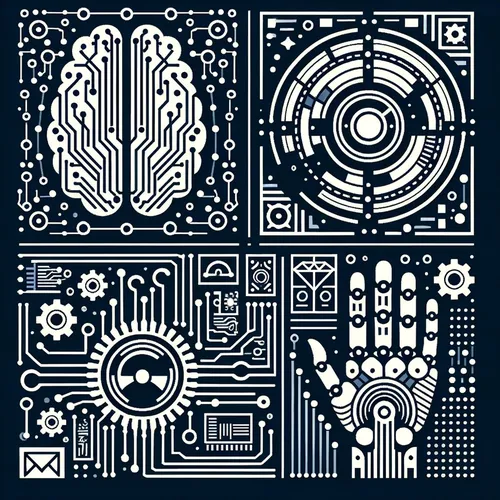AI Robots Invade! Quantum Leaps, Blockchain Hype, and IoT Frenzy Reshape Tech Landscape
- Author
- Quiet. Please
- Published
- Sun 15 Jun 2025
- Episode Link
- https://www.spreaker.com/episode/ai-robots-invade-quantum-leaps-blockchain-hype-and-iot-frenzy-reshape-tech-landscape--66563590
This is you Emerging Technology Trends: AI, Robotics & Digital Innovation podcast.
The day after June 15, 2025, marks a period of remarkable advancement across the technology landscape, with artificial intelligence, robotics, quantum computing, blockchain, and the Internet of Things driving unprecedented change. This year, artificial intelligence is not just powering software but also infusing robotics with a new level of intelligence, autonomy, and adaptability. Robots equipped with advanced artificial intelligence are now capable of real-time decision-making, predictive maintenance, and dynamic responses to unpredictable environments, making them indispensable across manufacturing, logistics, healthcare, and agriculture. Market data reflects this momentum: the global robotics industry is projected to double its value from nearly 72 billion dollars in 2025 to over 150 billion dollars by 2030, with industrial robotics alone expected to surpass 160 billion dollars by the end of the decade. The automotive sector remains a major driver of this growth, but healthcare and logistics are rapidly catching up.
Recent news highlights reinforce these trends. The International Federation of Robotics reports that there are now four million industrial robots in operation worldwide, a figure that has doubled robot density in factories. Sales of professional service robots, including those revolutionizing warehousing and logistics, have surged by thirty percent globally, demonstrating explosive cross-industry adoption. In the healthcare space, AI-driven robots are being used for surgeries and patient care, delivering significant efficiency gains and improved safety standards.
Quantum computing is emerging as a pivotal force in this ecosystem, promising to accelerate artificial intelligence workloads, enhance simulation capacity for robotics, and unlock new frontiers in cryptography and supply chain optimization. Meanwhile, blockchain and the Internet of Things are converging to provide secure, transparent, and real-time data flows necessary for the autonomous operation of interconnected machines and devices. However, integration challenges remain, with legacy system compatibility and high upfront investments posing significant barriers. The shift is pushing organizations to prioritize modular, interoperable platforms and invest in workforce upskilling to bridge talent gaps.
On the regulatory and ethical front, safeguarding data privacy, ensuring bias-free algorithms, and balancing automation with workforce impacts are becoming central themes for policymakers worldwide. Investments in compliance automation and digital simulation for risk assessment are rapidly expanding as companies seek to navigate evolving standards. Actionable takeaways for organizations include piloting AI-enabled robotics in targeted workflows, modernizing infrastructure to support digital twins and real-time analytics, and prioritizing cybersecurity in all deployments. Looking ahead, the relentless innovation and cross-industry fusion of artificial intelligence, robotics, and connected digital systems are set to redefine productivity, unlock new business models, and create resilient, adaptive enterprises for the decade to come.
For more http://www.quietplease.ai
Get the best deals https://amzn.to/3ODvOta
